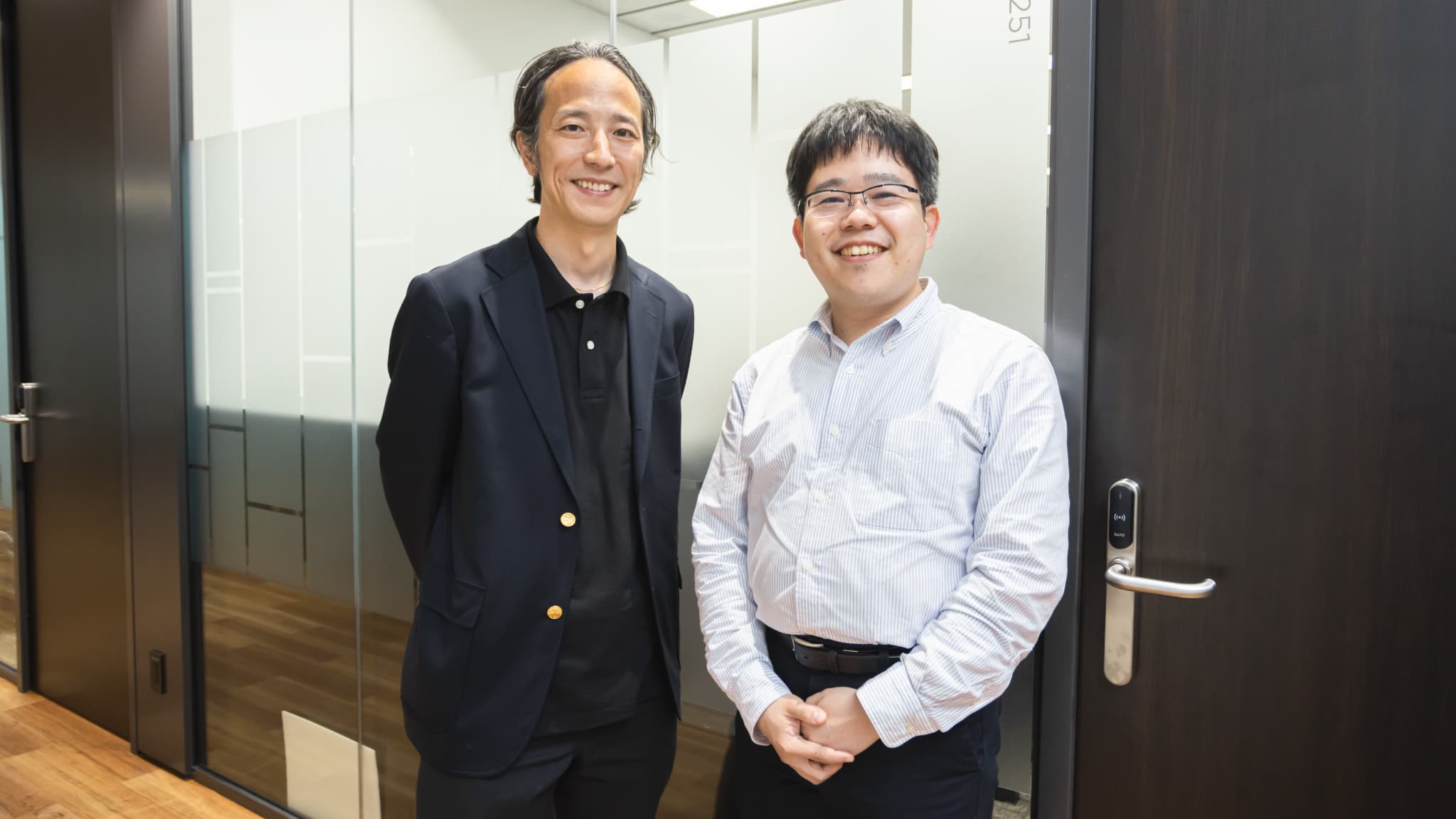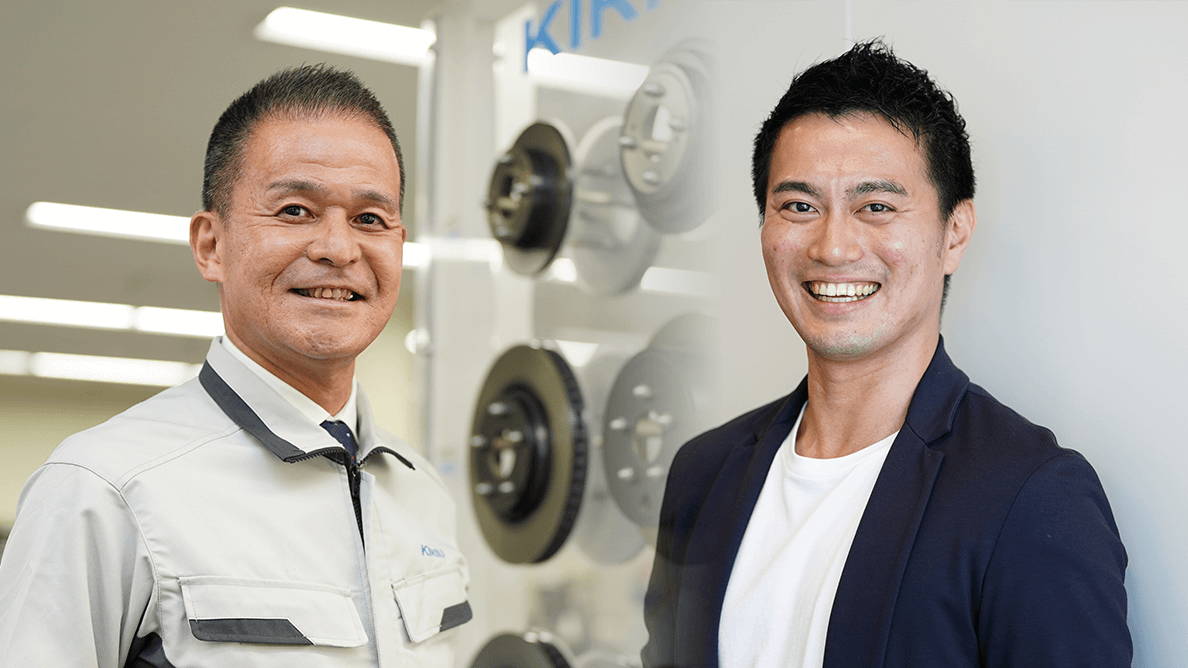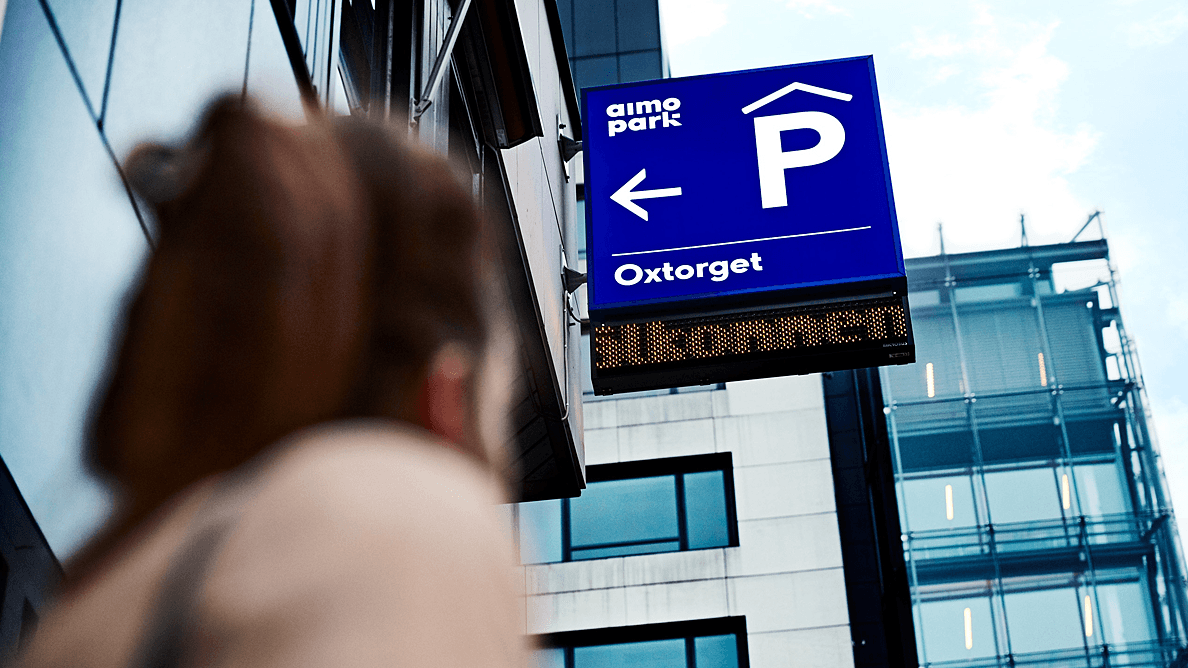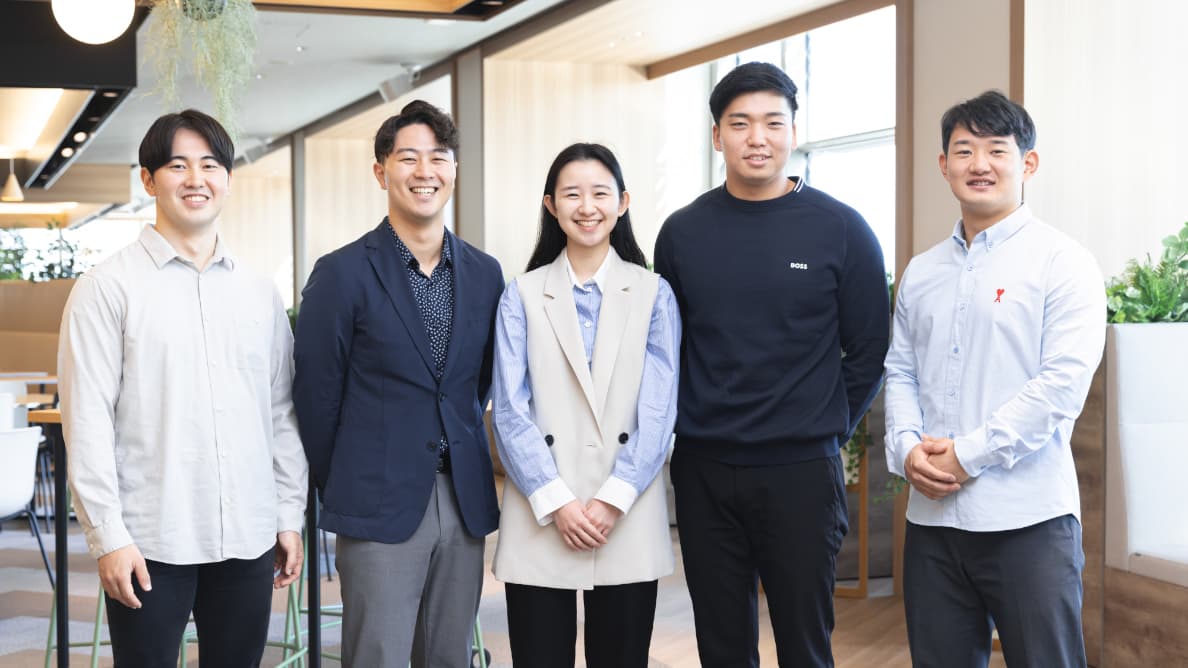
- TOP
- Enriching+TOP
- SMAS(Sumitomo Mitsui Auto Service ) Makes it Happen! Introducing EVs and Working Toward Decarbonization
2025.4.10
Business
SMAS(Sumitomo Mitsui Auto Service ) Makes it Happen! Introducing EVs and Working Toward Decarbonization
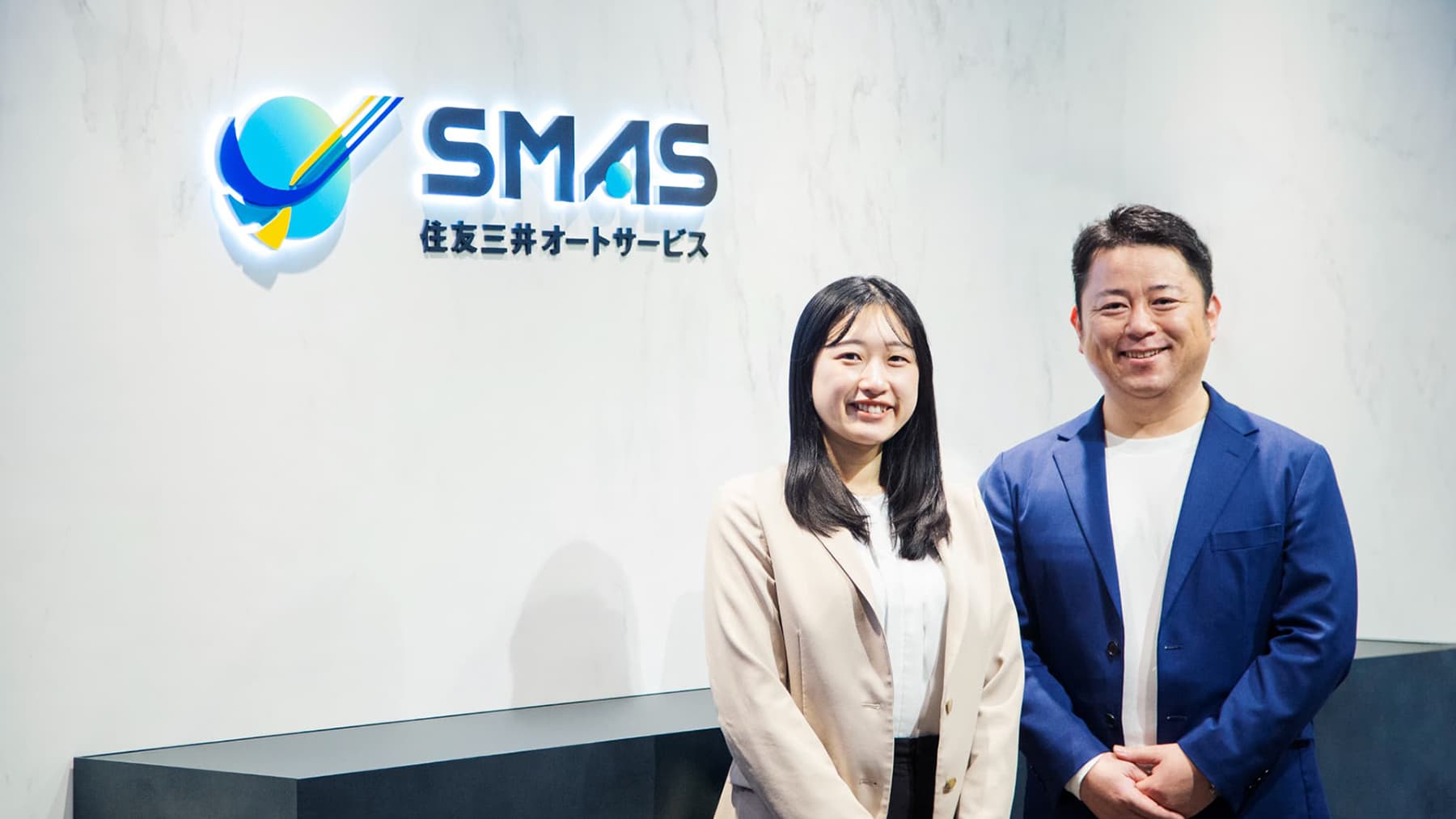
Formed through the integration of Sumisho Auto Leasing Corporation and SMBC Auto Leasing Co., Ltd., Sumitomo Mitsui Auto Service (SMAS) has been a leading company in the auto leasing industry for over 40 years. In addition to providing car leases, SMAS offers comprehensive mobility services to businesses, such as accident reduction and operational efficiency improvements, helping clients solve a wide range of vehicle-related issues. In recent years, SMAS has focused on supporting decarbonization efforts, including the introduction of EVs. We sat down with company representatives to hear more about their initiatives and the future they aim to create.
-

General Manager, Next Generation Mobility Promotion Office, EV & Carbon Neutral Strategy Promotion Department, SMAS(Sumitomo Mitsui Auto Service Co.)
Mitsuhisa Yokoyama
Yokoyama joined Sumitomo Corporation in 2000 as a new graduate hire. He worked in distribution, manufacturing, consulting and leasing businesses, primarily focusing on automobiles. He was seconded to SMAS from 2015 to 2019, where he handled business planning and development, promoting the company's transition into a mobility service platform. After serving as the president of a Sumitomo Corporation group company in Dubai, he returned to SMAS in 2024 to focus on business development related to EVs.
-

Mobility Business Planning Office, Mobility Planning Department, SMAS(Sumitomo Mitsui Auto Service Co., Ltd.)
Kurumi Tabunoki
Tabunoki joined Sumitomo Corporation in 2022 as a new graduate hire, working in the Fleet Management Business Unit. After devoting around one year to the management of an overseas leasing company, she was seconded to SMAS in April 2023, where she now works on improving existing services and planning new ones as a member of the Mobility Planning Department.

- Leveraging Domestic Leadership to Provide Comprehensive Mobility Services
- Visualizing Vehicle Data and Paving the Way for EV Adoption
- Sales Team Well-Versed in Company Vehicles: On-the-Ground Knowledge Creating New Services
- Innovating with Second-Life EVs and Autonomous Buses: Revolutionizing Mobility in Rural Areas
Leveraging Domestic Leadership to Provide Comprehensive Mobility Services
Could you start by giving us an overview of SMAS's business and its strengths?
YokoyamaSMAS has been involved in the auto leasing business since founding, and we currently manage and own around 1.04 million vehicles across the group. Thanks to this scale, we can keep leasing costs low and, more importantly, provide a wide range of services related to vehicles – including maintenance, accident prevention and safe driving training. Our strength lies in our ability to support all aspects of vehicle management.
You also support the introduction of EVs for businesses and local governments?
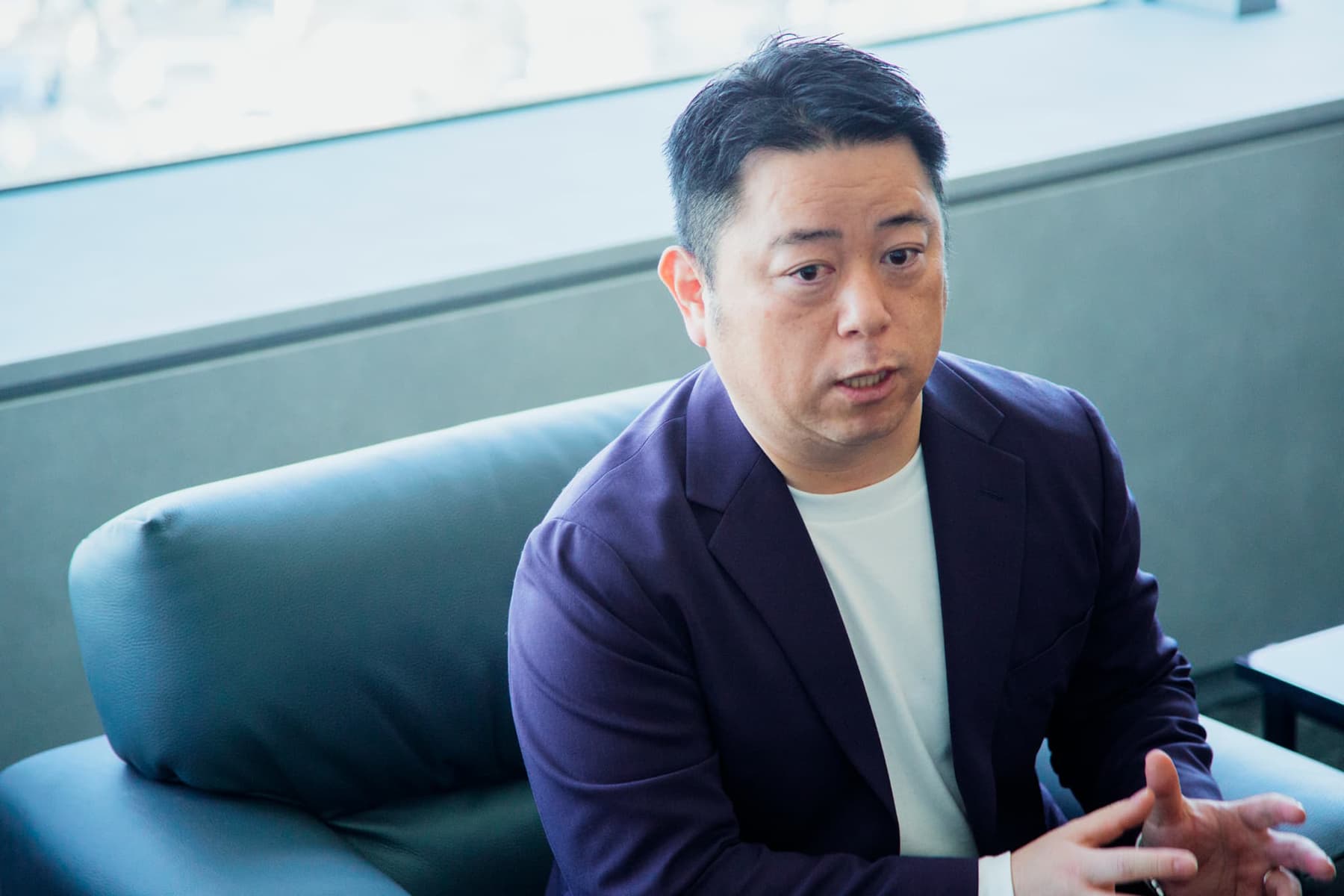
YokoyamaYes, we function as a "mobility platform aiming for a sustainable society," and in 2009 we became one of the first in the industry to launch an EV leasing business. Starting in 2020, there has been increased momentum towards transitioning from gasoline cars to EVs, driven by the need to achieve the government's 2050 carbon-neutral target. However, many organizations are held back by the cost and operational concerns surrounding EV adoption. To address these issues, we created the "EV One-Stop Service" based on our longstanding experience in the auto leasing business.
Visualizing Vehicle Data and Paving the Way for EV Adoption
Can you tell us about the features of the EV One-Stop Service?
TabunokiThere are three key features. First, "visualizing operational data." Using a MaaS (Mobility as a Service) app called "Mobility Passport," we help businesses and local governments track when and how much their vehicles are used, and determine the number of vehicles they need through optimization analysis. Second is "cost reallocation." By reducing the number of gasoline vehicles, we help clients allocate the budget saved toward EV adoption. Third is full "operational support" – including setting up charging infrastructure to aftercare services.
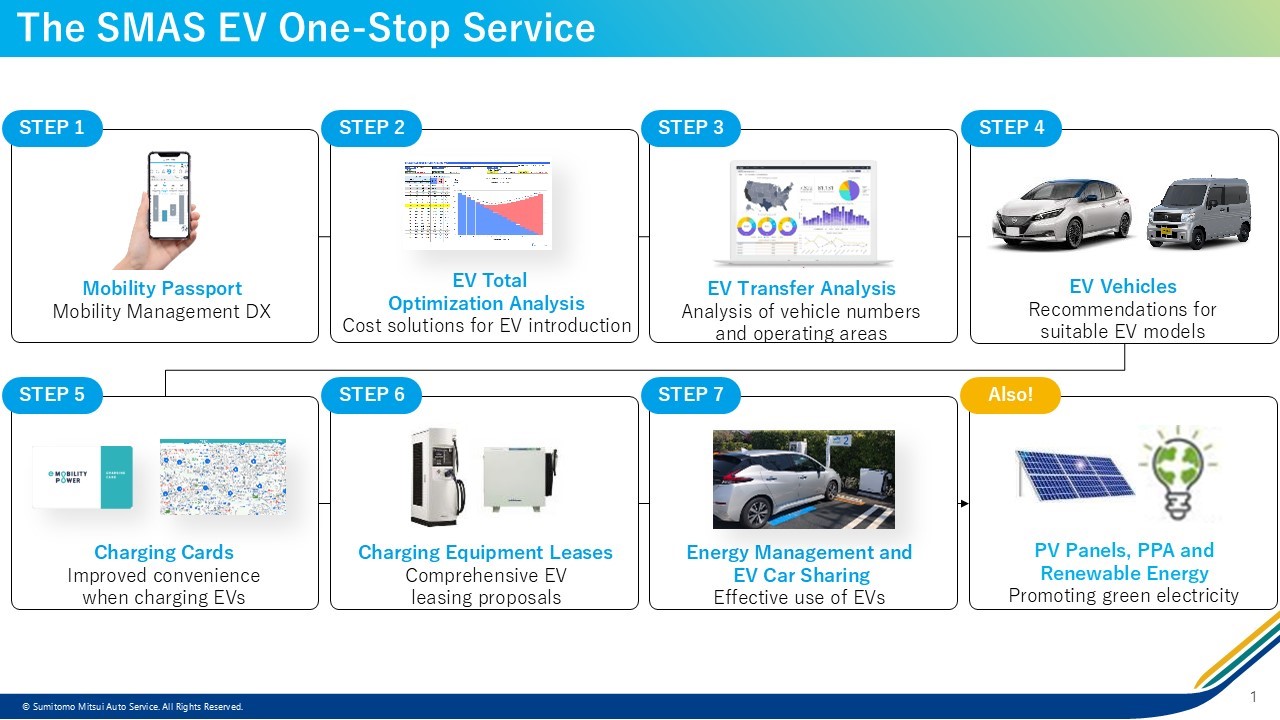
What results have you seen from businesses and local governments that have adopted the EV One-Stop Service?
TabunokiFor private companies, we've helped reduce fleet management costs by an average of around 20% through fleet optimization. As for local governments, Muko City in Kyoto Prefecture adopted "Mobility Passport" in April 2023. The management of official vehicles, which was previously spread across several departments, was centralized throughout the entire agency, allowing for optimal fleet size analysis. As a result, they were able to reduce their fleet by six gasoline cars and replace 20 government vehicles with EVs in just one year.
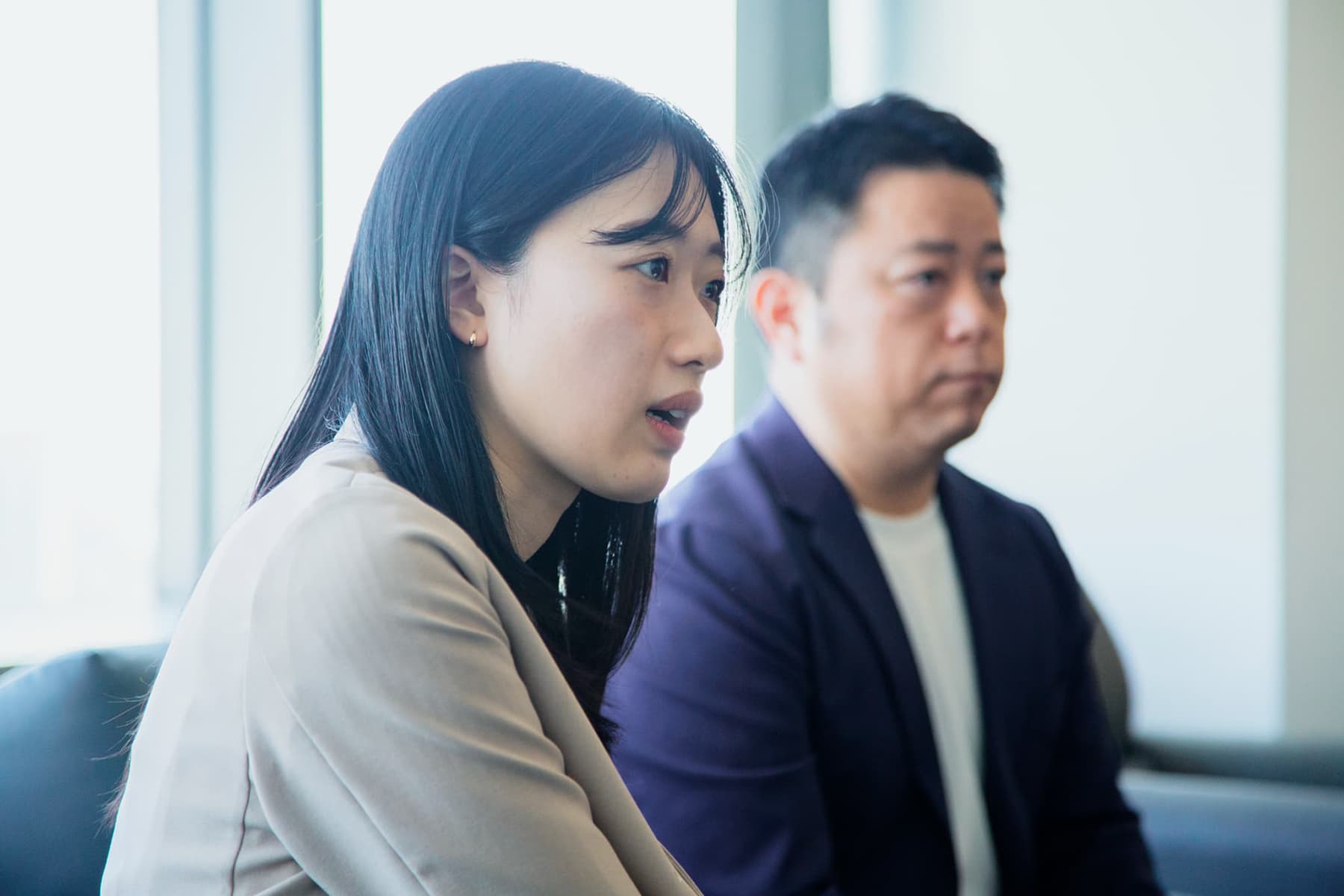
Sales Team Well-Versed in Company Vehicles: On-the-Ground Knowledge Creating New Services
How do you persuade companies and local governments across Japan to adopt the EV One-Stop Service?
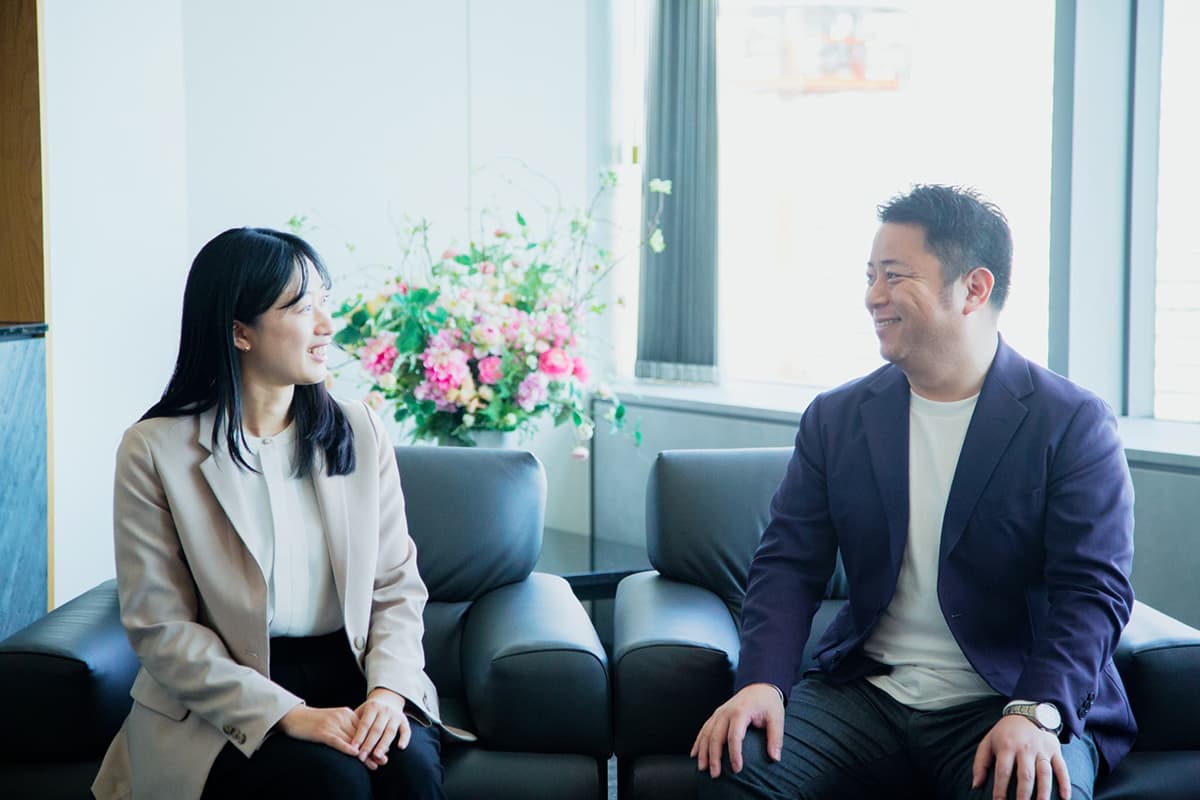
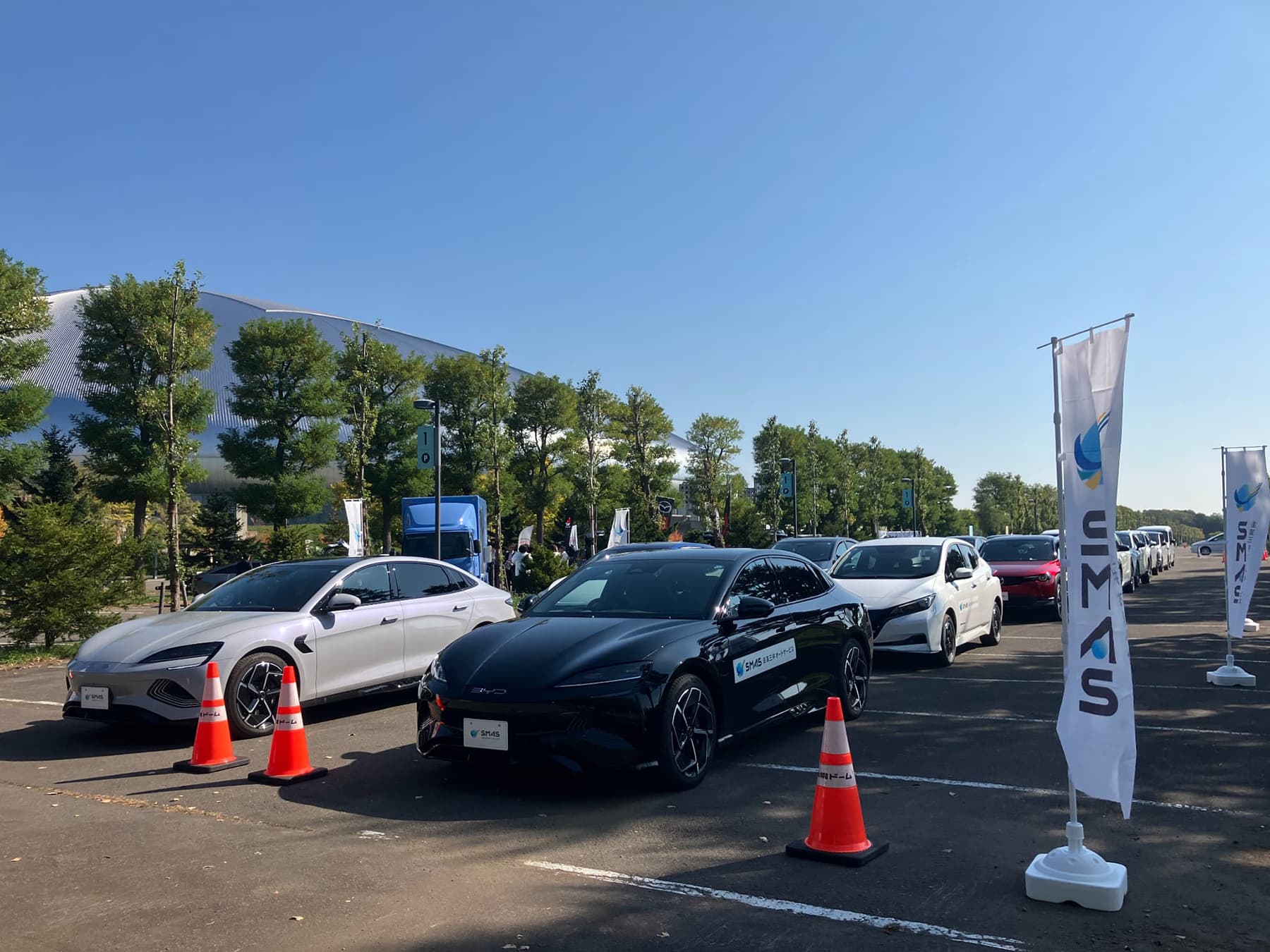
TabunokiMost businesses and local governments already have an interest in EVs, so we try to push them a bit further by creating opportunities to try them out. For example, we host EV test drive events called "e-PARK," where we leverage SMAS's diverse selection of EVs, allowing participants to compare vehicles from different manufacturers, both domestic and international. We also offer EV rental cars for businesses to try out in real-world use cases. For local governments, we set up internal "Municipality Projects," sharing case studies and promoting Mobility Passport trials. By getting people to experience EVs firsthand, we can highlight their benefits.
Is your wide network across Japan another key strength?
YokoyamaAbsolutely. As of March 2025、we have 37 sales offices nationwide, with around 1,200 employees dedicated to customer service offering tailored solutions. Local governments in particular face obstacles like slow budget approval processes and frequent changes in personnel. But through regular visits, we can collect valuable insight and understand their challenges. We also work closely with the SMBC Group (a major SMAS shareholder), regional banks and Sumitomo Mitsui Finance and Leasing (SMFL; a group company with offices nationwide), which helps us maintain an extensive, in-depth network across Japan.
Within the company, there is close communication between the sales team and the business development and planning departments. Our internal social media platform managed by the SMAS PR department, there is active information exchange regarding behind-the-scenes details on partnerships with local governments, as well as trends and knowledge useful in daily sales activities. One of the strengths of SMAS's sales team is their in-depth knowledge of real-world examples of company vehicle use. For example, they are well-versed in detailed information regarding the operating areas and distances traveled for beverage bottler sales vehicles, and they have insight tailored to other industries as well. This experience and knowledge from the field is leveraged in introducing company vehicles and promoting customer success across industries.
Do you have examples of your sales team working closely with customers to solve issues?
Yes, through their accumulated expertise, SMAS sales reps make daily suggestions to solve clients' challenges. One sales rep received a request from a client who said that they had experienced several accidents with their company vehicles and wanted to act but were not sure where to start. While it's important for companies to raise awareness about safe driving, without specific improvement measures, problems can't be solved.
The sales rep believed that the first step was to visualize the current situation and proposed vehicle installation of telematics devices. By collecting data and analyzing driving patterns, they expected to identify factors contributing to accidents. After installing the devices and analyzing data, certain patterns emerged in driving behavior, including speeding, hard braking and certain routes with a high accident risk.
But just collecting the data wasn't enough. The sales rep suggested that since they had the records, why not analyze the footage and work to raise awareness for safe driving. The rep supported the client by conducting reviews using the recorded footage and organizing driver safety training. Working closely with the SMAS Customer Success team, they established a system for ongoing data analysis and safe driving support. As a result, the client saw a significant decrease in accidents and praised our efforts, not just in supplying vehicles but also helping to reduce accidents through improved safety. This experience reaffirmed for me that at SMAS, our sales strengths don’t just lie in providing vehicles, but also in supporting operational improvements through data.
Innovating with Second-Life EVs and Autonomous Buses: Revolutionizing Mobility in Rural Areas
I understand you're also pioneering services like second-life EVs and autonomous buses. Can you tell us more about these initiatives?
YokoyamaCurrently, we're focusing on the "reused EV" concept. The longer an EV is in use, the greater the CO2 reduction. For corporate clients, there are also significant cost benefits. Not only can the initial and running costs be reduced but leasing fees are also considerably lower compared to new vehicles.
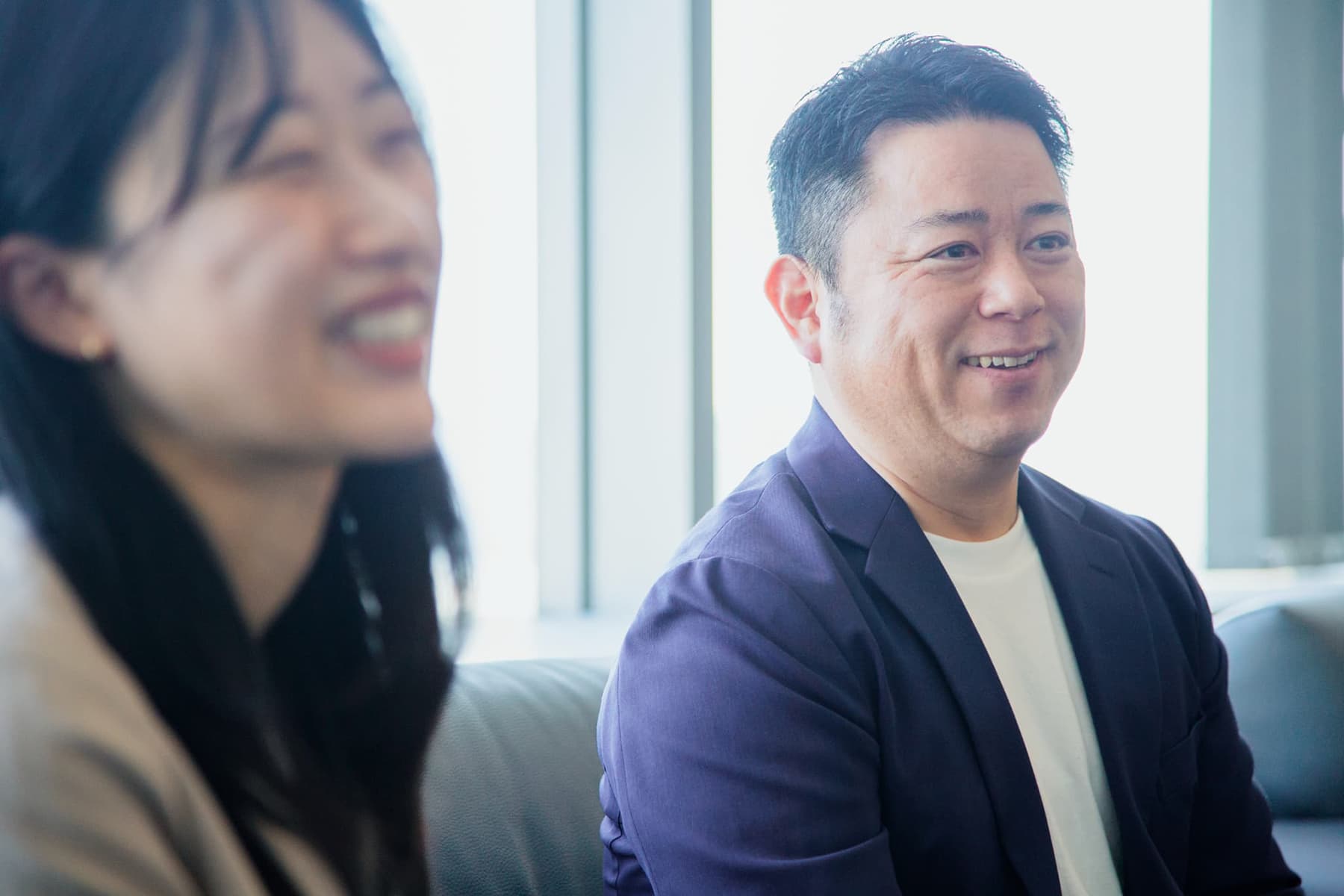
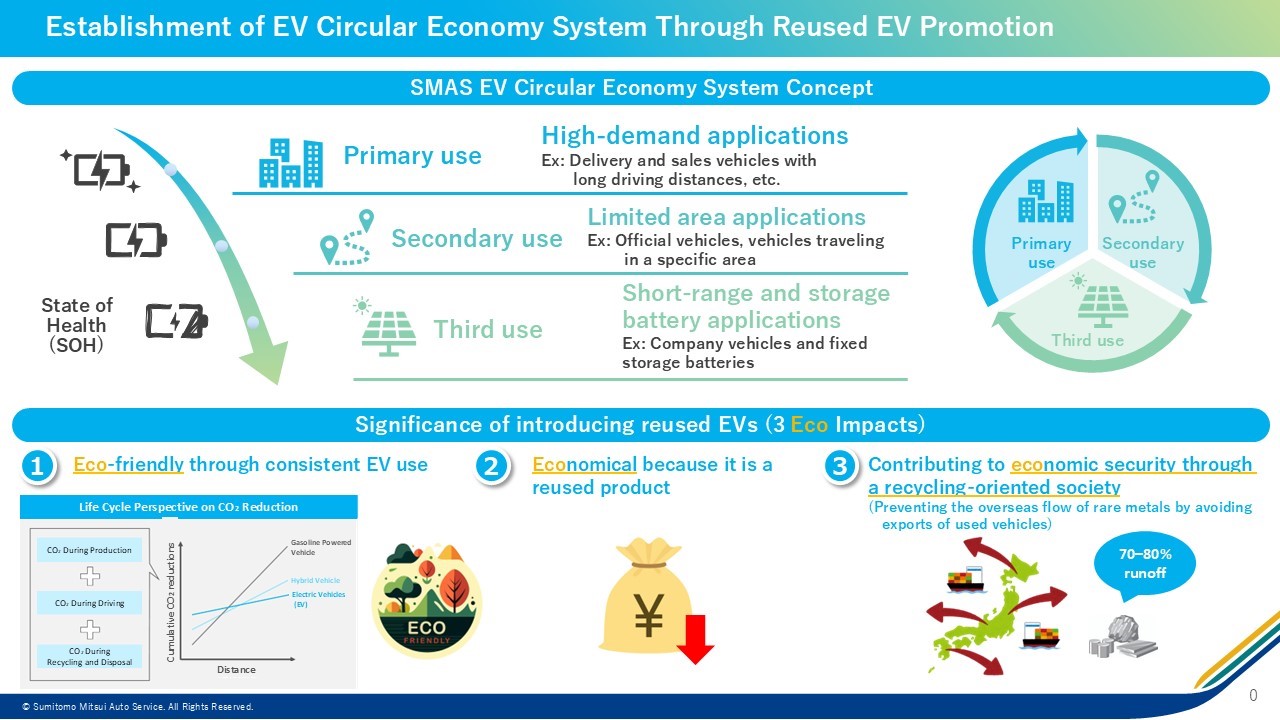
Have you already started using reused EVs?
YokoyamaYes, we've been conducting pilot programs with municipalities like Nose and Toyono, two towns in Osaka Prefecture, and the city of Kishiwada, also in Osaka. Many public service vehicles are used on a limited basis within the administrative area and average distances of around 50 km per day. In such instances, we start by introducing reused EVs. If battery range starts to decline, we repurpose the EVs for limited area use, such as the factory premises or distribution center of a private business, giving them a third lease on life. Eventually, the batteries can be removed and reused in other ways, including emergency power supplies, street lighting or agricultural equipment. We're aiming to establish a circular economy for EVs, maximizing their life cycle within local communities.
Are you also involved in the local government autonomous bus initiative?
YokoyamaYes, starting from FY2023, we've been supporting autonomous bus trials and implementation. In Sakai (Ibaraki Prefecture), Taki (Mie Prefecture) and Iyo (Ehime Prefecture), we're helping local governments introduce autonomous buses through auto leasing. Recently, in collaboration with Sumitomo Corporation, we launched an autonomous bus project in the city of Kumamoto. Through the experience we've gained from working with local governments, we're now bringing together stakeholders as a mobility platform provider.
These efforts are still rare in the auto leasing industry, but in rural areas, where aging populations and depopulation are serious issues, restructuring public transportation is a pressing need. Interestingly, we've found that, thanks to strong leadership, local governments in rural areas often make decisions quicker than their urban counterparts. As also seen with on-demand taxis and ridesharing, the mobility revolution is taking root in these rural areas.
What is your vision for the future?
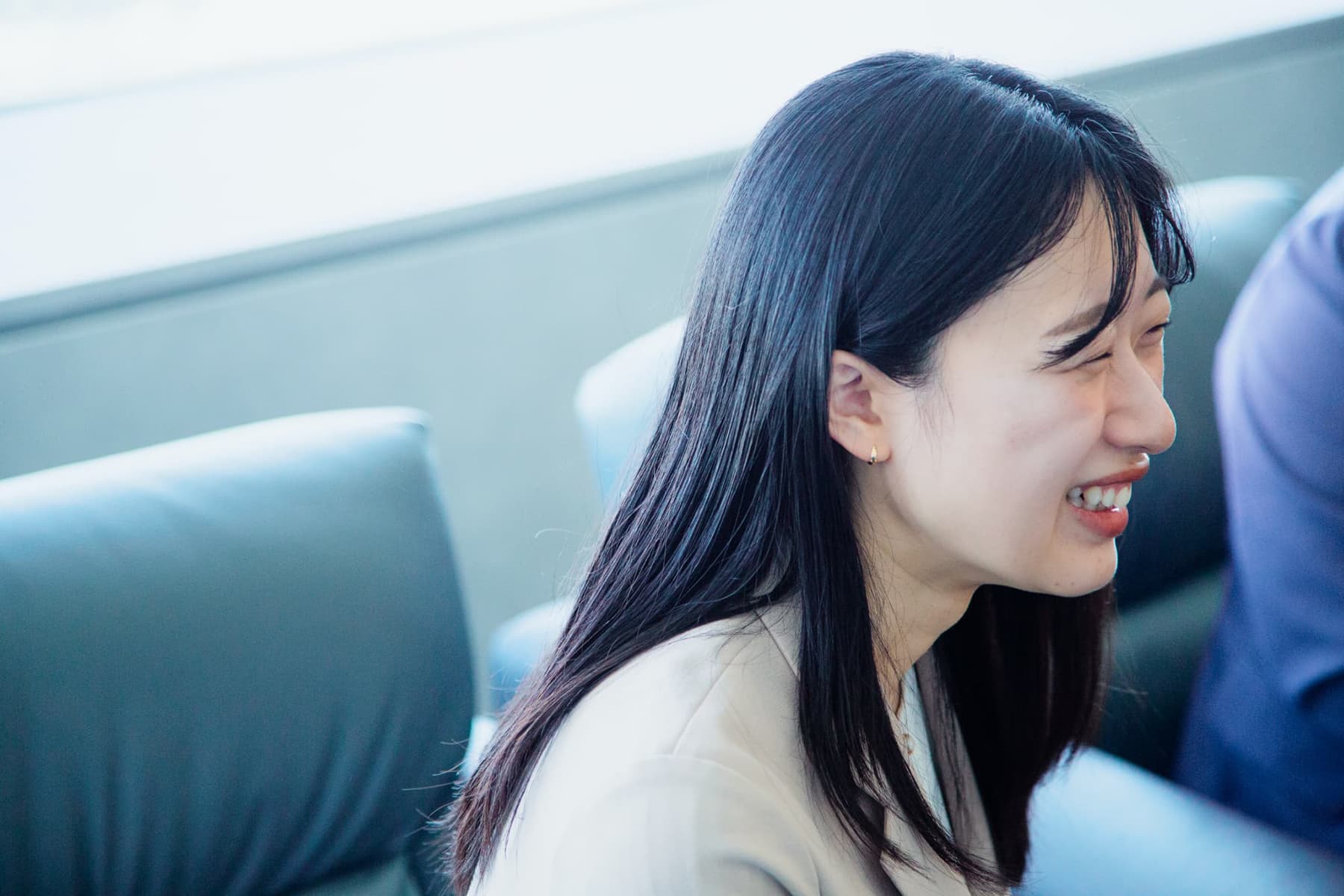
TabunokiWhile EVs make up less than 10% of total vehicle sales in Japan, we believe we’re now in the EV era. Our goal is to firmly establish SMAS as the name to remember for EVs and position ourselves as the flagbearer for EV adoption, which will have a major impact on decarbonization. In particular, by accelerating the transition of public and corporate vehicles to EVs, we hope to drive significant social change.
YokoyamaExactly. Through SMAS mobility services, we want to make lives better for people across Japan and the world. That is the ultimate goal we strive toward – continuing efforts that embody Sumitomo Corporation's corporate message: "Enriching lives and the world."




